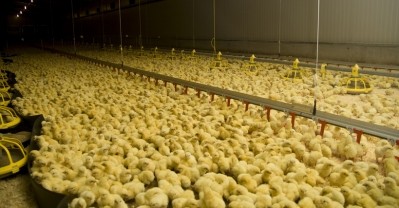DSM develops vitamin A based on renewable raw materials, animal health market to benefit

It follows “pioneering research” undertaken by the company’s scientists and the development of a proprietary manufacturing process.
Initially the bio-based vitamin product will be used in cosmetic applications. Testing is now underway with the first selected customers, with commercial-scale production and a full launch scheduled for early 2023.
Evaluation of the bio-based vitamin for take-up by a wide range of other end markets, including in the area of human and animal health, will follow, said the developer.
“Vitamin A has various nutritional uses and benefits in supporting human and animal health and DSM is developing further applications for these markets with testing soon to get underway.”
Current industrial methods for the production of vitamin A rely on chemical synthesis from petroleum-derived substrates, such as acetone and acetylene.
In house R&D work led to a new scientific breakthrough, making it possible to produce vitamin A using a specially developed strain of yeast that converts a renewable carbon source into vitamin A, explained DSM.
The process has since been refined and proven to be scalable following a collaborative project involving six of its facilities including the company’s Lexington and Columbia sites in the US, the Delft unit in the Netherlands, the Grenzach campus in Germany, and its Kaiseraugst and Sisseln sites in Switzerland.
Reduced carbon footprint
A spokesperson for DSM told us: "Today basically all market players use similar multi-step chemical production facilities and processes based on petrochemicals. By using yeast and renewable materials, the new bio-based process to produce retinol through fermentation that DSM has pioneered will significantly reduce the carbon footprint and waste of vitamin A manufacturing, in line with our long-term target to reach net-zero GHG emissions across our value chain by 2050."
The plan, said the spokesperson, is to increase capacity in vitamin A only with this new, bio-based process technology. "Dialogue with the industry is an important factor in setting a specific timeline," he continued.
Call for industry to shift to bio-based processes
DSM hopes the breakthrough will be influential in the wider market:
"As a vocal climate action advocate and leader in this field, we expect this breakthrough to trigger all vitamin A manufacturers worldwide to reconsider how they will invest to accelerate the transition to a healthier future for people and the planet away from the traditional chemical processes that are based on finite resources,” said Joerg von-Allmen, DSM’s VP, vitamins category management.
Manufacturing vitamin A at scale was first made possible following a scientific discovery in 1947 at Hoffmann-La Roche, from which DSM acquired the vitamins business in 2003. Today, DSM is the leading producer globally of that vitamin, manufacturing the ingredient at its Sisseln facility.













